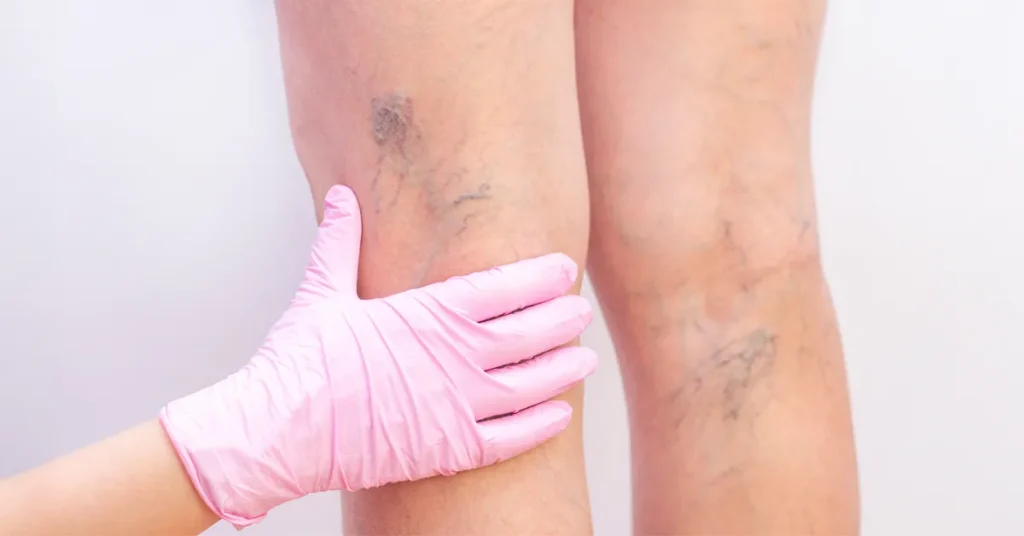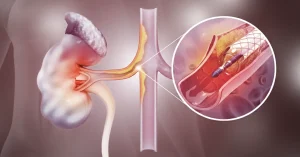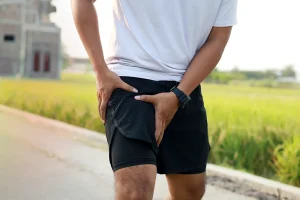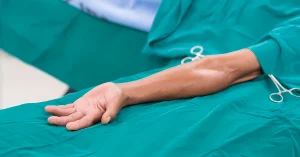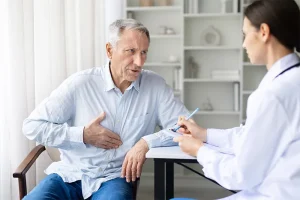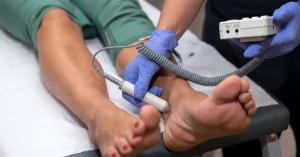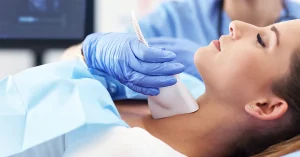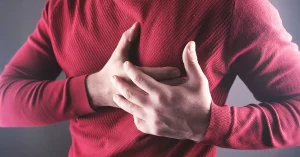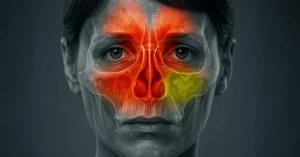Varicose veins in the legs are enlarged and swollen veins, often visible under the skin, that commonly appear on the lower limbs. They occur due to a dysfunction of the venous valves, which leads to blood pooling in the veins instead of flowing properly back to the heart.
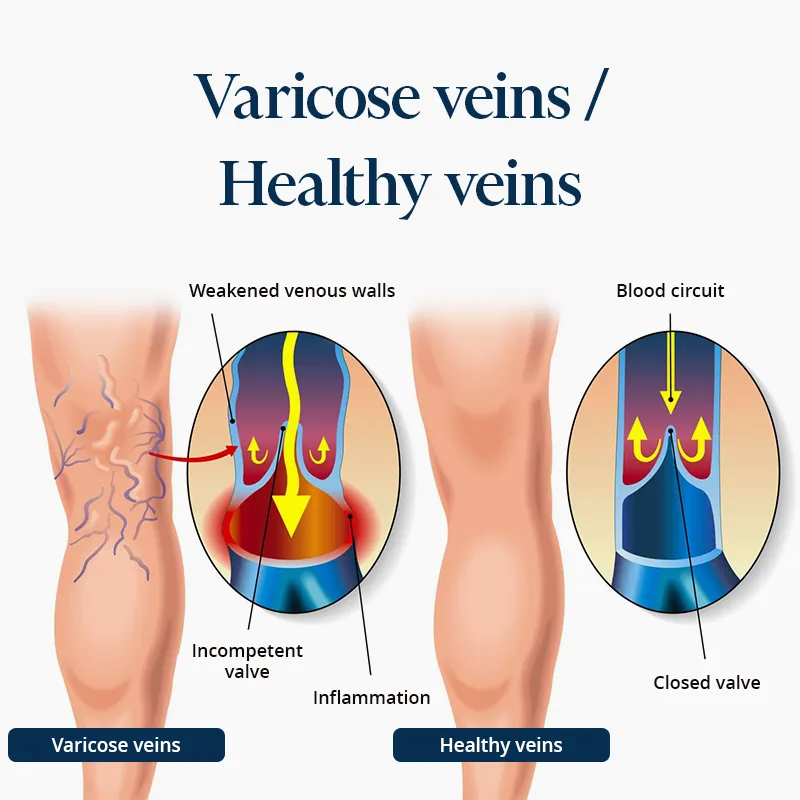
Causes And Risk Factors For Varicose Leg Veins
The main cause of varicose veins is venous insufficiency, where the valves inside the superficial veins stop working properly, allowing blood to pool and dilate the veins. Other factors can increase the likelihood of developing varicose veins, such as:
- Genetic predisposition: If your family members have varicose veins, you are at higher risk.
- Female sex: Women, especially during pregnancy or menopause, are more likely to develop varicose veins.
- Pregnancy: Increased uterine pressure can disrupt circulation and raise the risk of varicose veins.
- Lifestyle: Prolonged standing or sitting, lack of movement, obesity, and a sedentary routine all raise the risk.
- Age: As we age, vein walls can weaken, making varicose veins more likely to appear.
Symptoms For Varicose Leg Veins
Symptoms vary from person to person and can include:
- Prominent, colored veins: These enlarged blue or red veins often appear twisted or bulging and can develop on any part of the legs.
- Heaviness or discomfort: Many people feel a sense of heaviness or aching in their legs, especially after standing or walking for long periods.
- Swelling and edema: Varicose veins may cause swelling around the ankles and feet due to blood pooling.
- Pain or burning: Some individuals experience pain or a burning sensation in the affected veins, especially after exertion or at the end of the day.
- Itching and irritation: The skin around varicose veins can sometimes become itchy or irritated.
- Circulation problems: Poor circulation can lead to skin changes like pigmentation or even venous ulcers.
- Tingling or numbness: Some patients report tingling or numbness where varicose veins are present.
In more advanced cases, varicose veins can cause skin changes such as thickening, darkening, eczema, and even hard-to-heal venous ulcers. Thrombophlebitis—a blood clot forming inside a vein—can cause severe pain and requires urgent medical care.
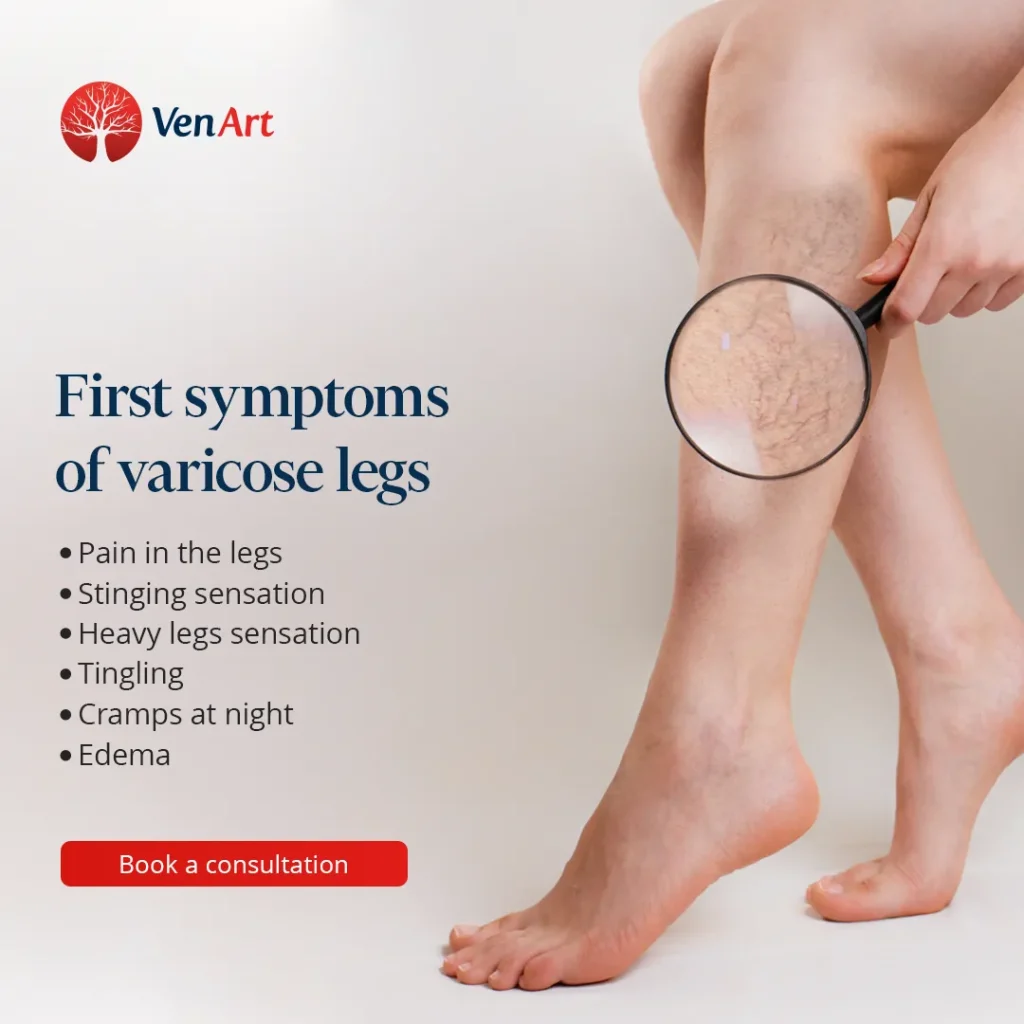
Diagnosis And When To Schedule A Doctor’s Appointment?
Recognizing the signs early and consulting a vascular specialist can make a big difference in managing varicose veins. Diagnosis typically includes a physical exam and an ultrasound to evaluate vein condition and blood flow.
Foot Varicose Vein Treatment Available At VenArt Clinic
Treatment options range from lifestyle adjustments and conservative methods, like compression stockings, to advanced medical interventions.
Treatment Of Varicose Veins With VNUS Radiofrequency
VNUS radiofrequency is a modern, popular option because of its many benefits. This technique uses advanced technology and precise equipment to treat varicose veins less invasively.
Venosteam Varicose Vein Treatment
Venosteam treatment is done on an outpatient basis and is minimally invasive. This method, developed by Dr. René Milleret, has been used with success in Europe for over 15 years.
Sclerotherapy And Macrosclerotherapy
Sclerotherapy is used for small varicose veins, while macrosclerotherapy treats larger ones. A sclerosing solution is injected through a fine needle to shrink the veins effectively.
Surgical Treatment
Surgical options aim to reduce pressure by tying off affected veins or removing them altogether. In many cases, the main superficial veins are surgically removed.
Updates And Resources
Our mission is to support patients with varicose veins by providing updated information and helpful resources to encourage better health and care. We also use innovative techniques like the Venosteam steam method to offer safe, minimally invasive solutions.
Recipes to fight varicose veins: main dishes.
Conclusion
At VenArt Clinic, we specialize in the treatment of varicose veins and have a team of highly qualified vascular surgeons with years of experience. To make an appointment with one of our specialists, please visit our appointments page.
Medical Consultant: Dr. René Milleret

